On Saturday, May 5, Democratic Party Legislative Council member Ted Hui was arrested on suspicion of assault, dishonest access to a computer, obstructing a public officer in the execution of her duty, and criminal damage.
What had he done to merit this? Snatch a mobile phone from a Hong Kong government official he suspected of monitoring Legco members. He returned the phone and apologised, but this was not enough to head off, first, condemnation by the Hong Kong government and the Communist Party’s Hong Kong allies, and now, arrest and possible prosecution.
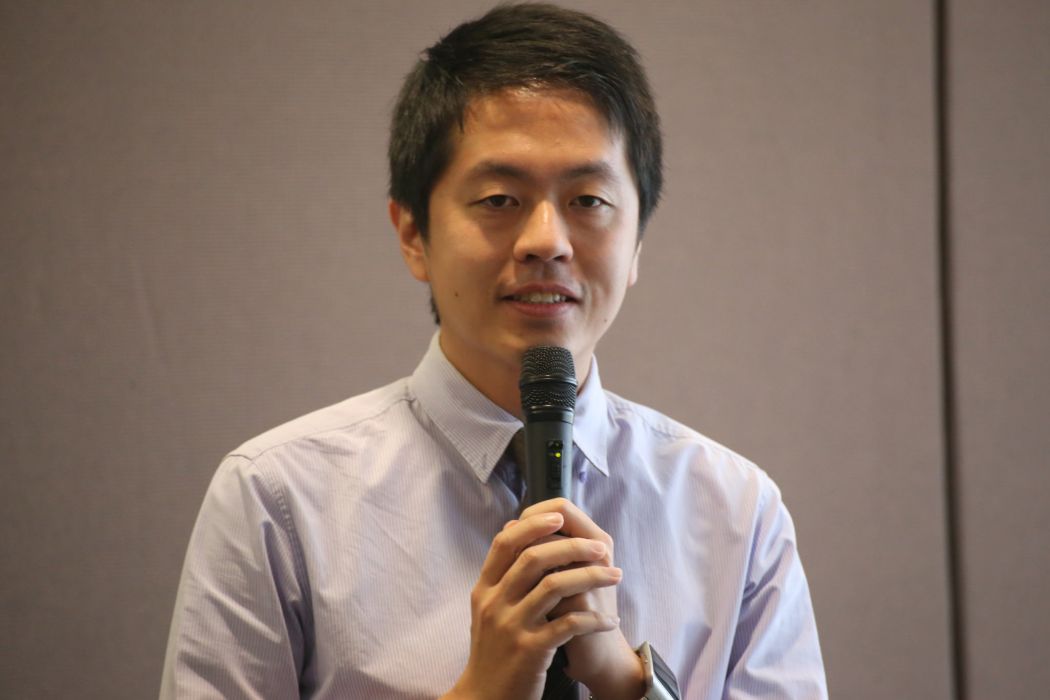
All of this was pretty predictable. What Hui did was stupid. You should not snatch other people’s phones, even if you suspect they are spies. His act simply handed the Hong Kong government a golden opportunity to persecute yet another pro-democracy Legco member.
But in all the controversy, the symbolism of the moment and its wider context have been largely overlooked. It appears Hui was correct in suspecting the government official was monitoring Legco members. She had been sent to herd pro-Communist Legco members into meetings in order to ensure a quorum.
This is part of an initiative undertaken by the government to counteract what it perceives as obstructionism on the part of pro-democracy Legco members, who have used Legco rules and procedures to delay government initiatives they oppose but ultimately do not have the votes to block.
The first part of the initiative was to pass anti-filibustering rule changes in December 2017. But the government apparently thought that in itself was insufficient; thus, its shepherding project. This would be funny if it weren’t so inappropriate and ominous. The pro-Communist Legco members are so inept that they can’t figure out how to get the requisite number of bums on seats in meetings.
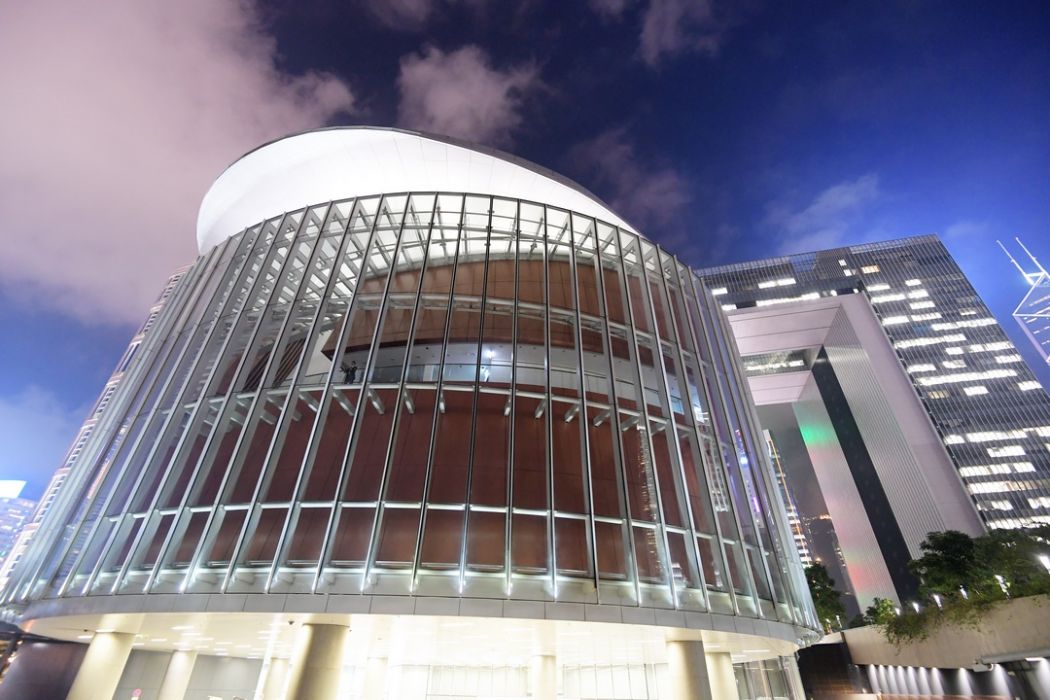
But the government monitoring is part of a darker trend: trespassing into areas previously considered the purview of Legco. Rule changes are the least of its arsenal. The more potent weapons are disqualifications and prosecutions of sitting pro-democracy Legco members, and blocking potential candidates from running for Legco on political grounds.
The ultimate objective is to defang an already mostly powerless Legco and turn it into a harmless rubber stamp body along the lines of the National People’s Congress. It should project an image of representative participation in the political process without the messiness of opposition and resistance, let alone any real power. In this sense, it is part of the larger project of the mainlandization of Hong Kong institutions and norms.
How did it get to this point?
According to the Basic Law (Article 68), the Legislative Council is ultimately to be elected entirely according to principles of genuine universal suffrage. That means one person, one vote, all votes counting equally, for all Legco seats.
As it stands, Legco is effectively rigged in favor of Party and Hong Kong government allies.
Thirty-five of its 70 seats represent geographical constituencies. Until the recent disqualifications of elected Legco members and the barring of candidates on political grounds, these were the only elections for high-level political office in Hong Kong which were free and fair and conducted according to principles of universal suffrage.
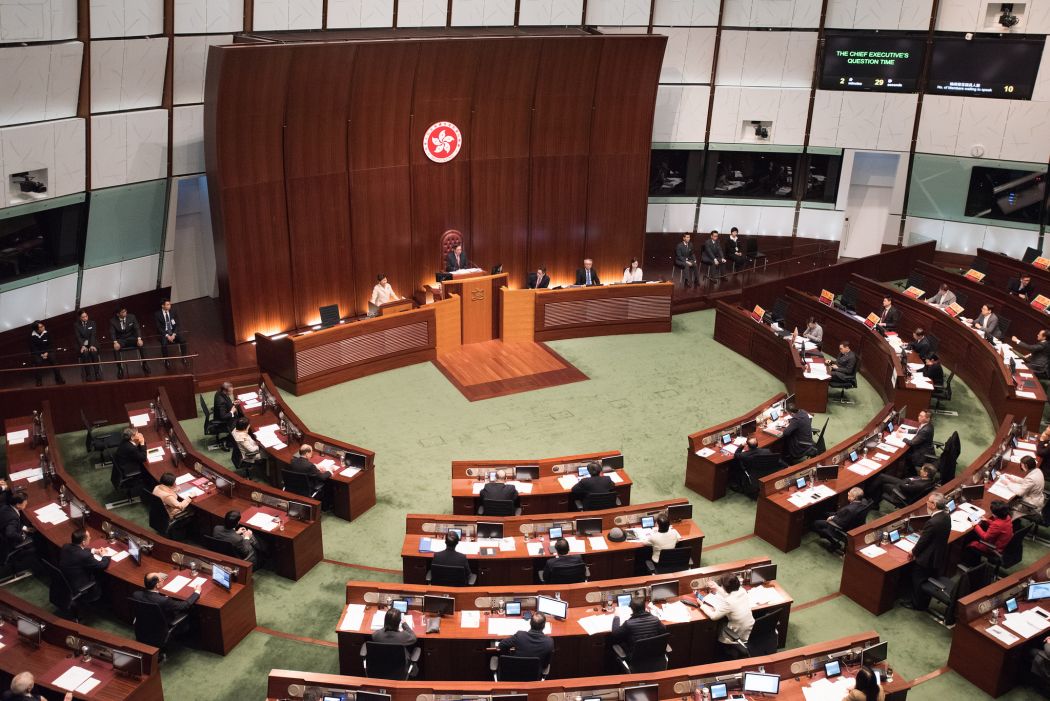
The other 35 seats represent so-called functional constituencies. Only members of those constituencies, most of which are formed along professional or vocational lines, can vote for those seats.
While the overall number of registered voters is about 3.8 million (with a total of somewhere around 4.8 million people eligible to vote), only 236,859 voted in 30 functional constituencies in the 2016 Legco elections: 4% of the electorate elected 42% of the representatives. Unsurprisingly, most functional constituencies are controlled by entrenched interests allied with the Party and Hong Kong government.
It should also be remembered that Legco is not a legislative body in the normal sense of the word. It cannot propose its own legislation (except in special cases which do not entail any expenditure), only vet government-initiated legislation. For that reason, Legco members are not “lawmakers” or “legislators”.
Twenty years after the handover, universal suffrage in Legco elections is no closer to being realized. Indeed, from a very undemocratic starting point, we’re moving backwards to an even more restricted, less open, less representative political system.
When the Party supposedly decided in 2014 to allow Hong Kong to elect the Chief Executive, it said that once that was achieved in 2017, there would be the possibility of implementing universal suffrage in Legco elections at the earliest in 2020.
But the Party refused to allow the Hong Kong government to put forward a proposal to elect the Chief Executive according to principles of genuine universal suffrage, and its fake suffrage proposal was rejected in 2015. This means the implementation of universal suffrage for Legco is also indefinitely stalled.
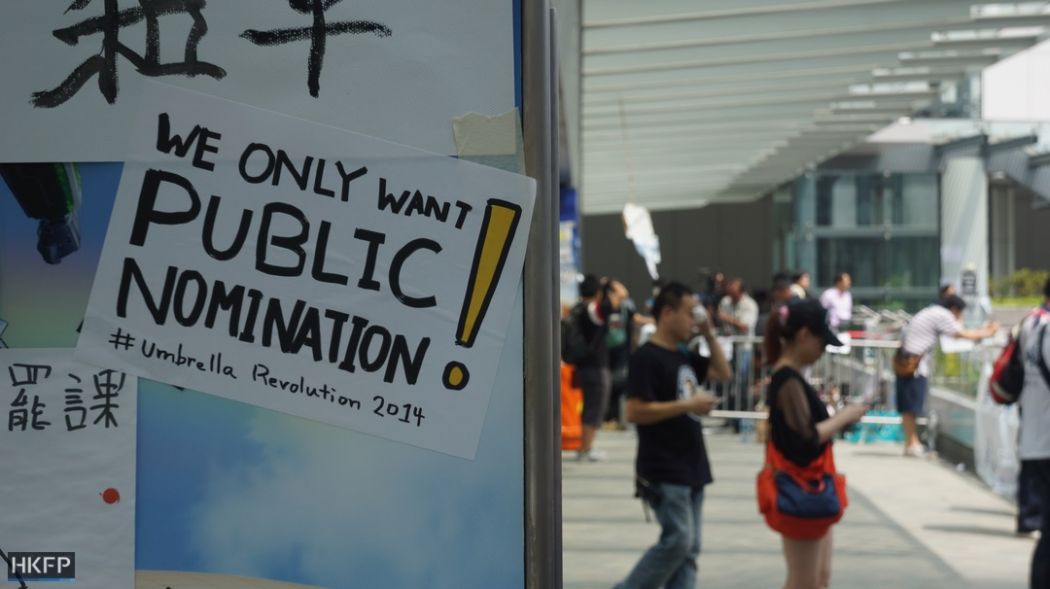
According to international human rights law, states have the responsibility of realizing and protecting human rights, including the right to universal suffrage (Article 25, ICCPR, to which Hong Kong is party).
The Chinese and Hong Kong governments are legally obliged to realize universal suffrage. They cannot blame failure to do so on anyone else, nor can they postpone the matter. While the principle of progressive realization applies to economic and social rights, since some of them cost money (like schooling for all children), it does not apply to political and civil rights.
Legally speaking, the Chinese and Hong Kong governments have no excuse for the continued delay in implementing universal suffrage for elections of the Chief Executive and Legco. Indeed, until they do, the Hong Kong government and Legco, from the perspective of international law, are illegal.
But the only actions the Party and Hong Kong government have undertaken in regard to Legco since the defeat of their fake suffrage proposal in 2015 have gone in the opposite direction: further restricting the rights of sitting Legco members, of potential candidates, and of voters.
The turning points here are clear: first, the 2014 Umbrella Movement; then the rise of localists and independence advocates; then the violence in Mong Kok during Chinese New Year in 2016; and finally the 2016 Legco elections.
The Party looked at these developments and concluded it had to take steps to combat “hostile elements”. Hong Kong people were simply getting too uppity. The last straw was how well new post-Umbrella candidates did in the 2016 Legco elections.
And now, here we are
Here is a list of candidates representing new pro-democracy parties who were elected to Legco for the first time in 2016, along with their eventual fate:
- Baggio Leung, Youngspiration- disqualified, convicted of unlawful assembly
- Yau Wai-ching, Youngspiration- disqualified, convicted of unlawful assembly
- Nathan Law, Demosistō- disqualified, convicted of unlawful assembly
- Lau Siu-lai, Democracy Groundwork- disqualified
- Edward Yiu, independent- disqualified
- Cheng Chung-tai, Civic Passion- convicted of desecrating PRC & HKSAR flags in Legco
- Eddie Chu Hoi-dick, independent – nothing so far, apart from death threats
See a pattern? The only one of the seven who has not been kicked out of Legco and/or prosecuted is Eddie Chu. He also happens to be the candidate who won the most votes ever in any Legco election, 84,121. The government has apparently concluded that, for the moment, he’s untouchable, and the strategy is to isolate him by removing his allies.
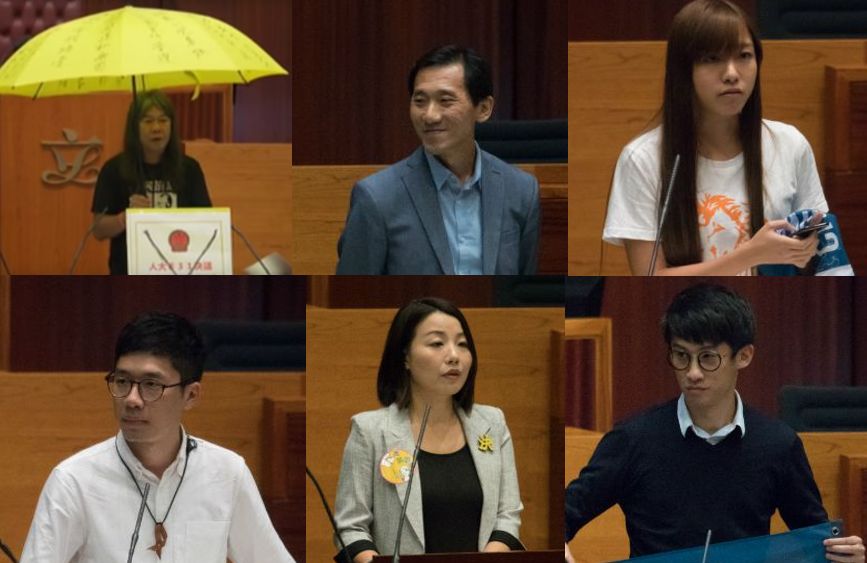
Ted Hui is part of a group of new, young candidates who were elected from Civic party and Democratic Party, the established and relatively moderate pro-democracy parties, which includes Alvin Yeung, Jeremy Tam and Lam Cheuk-ting. He is the first of this group to be targeted; perhaps the government had just been waiting for the opportunity.
Of course, it’s not only the new, young pro-democracy Legco members the government has gone after. If it decides to prosecute Ted Hui for the phone-snatching incident, he will be the 13th pro-democracy Legco member to face, in all, 19 legal proceedings brought by the Hong Kong government against sitting Legco members since the Umbrella Movement. Here is the full list:
- Baggio Leung (disqualified over oath-taking)
- Yau Wai-ching (disqualified over oath-taking)
- Leung Kwok-hung (disqualified over oath-taking)
- Lau Siu-lai (disqualified over oath-taking)
- Nathan Law (disqualified over oath-taking)
- Edward Yiu (disqualified over oath-taking)
- Wong Yuk-man (convicted of assault for throwing glass at CE in Legco)
- Nathan Law (convicted of unlawful assembly related to Umbrella Movement)
- Cheng Chung-tai (convicted of desecrating PRC & HKSAR flags in Legco)
- Albert Chan (acquitted of obstructing police)
- Leung Kwok-hung (acquitted of misconduct in public office)
- Leung Kwok-hung (judge threw out ‘contempt of Legco’ prosecution, govt appealing)
- Leung Kwok-hung (‘assault’ outside of Legco in April ‘17, brought in April ‘18)
- Baggio Leung (convicted of unlawful assembly in Legco)
- Yau Wai-ching (convicted of unlawful assembly in Legco)
- Tanya Chan (‘inciting public nuisance’ at Umbrella Movement, trial in November)
- Shiu Ka-chun (‘inciting public nuisance’ at Umbrella Movement, trial in November)
- Kenneth Leung (sued for defamation by former CE CY Leung, trial date unknown)
This list includes three cases of charges being brought against Legco members after they were kicked out of Legco: Baggio Leung and Yau Wai-ching for unlawful assembly and Leung Kwok-hung for assault. All three cases are related to incidents occurring while they were still Legco members. The 15 other cases were brought by the government against sitting Legco members.
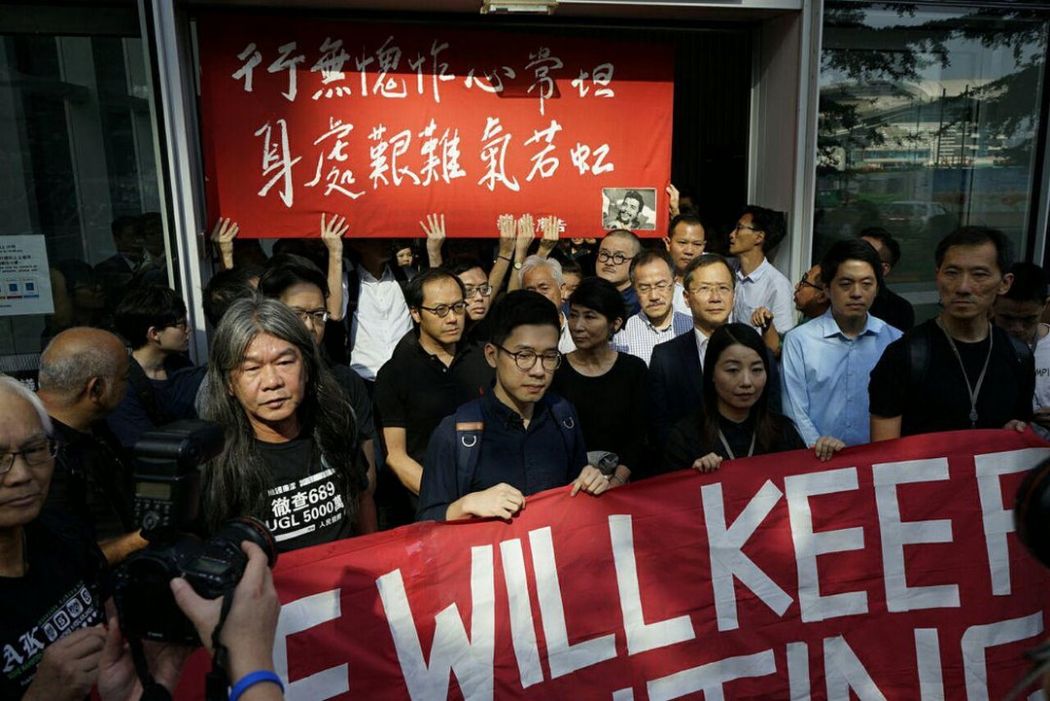
There are currently 25 pro-democracy Legco members. Prior to the six disqualifications, there were 29. Two of four seats left vacant by the disqualifications were filled by pro-democracy candidates in March by-elections this year. Of the 29, more than a third have faced judicial proceedings.
And of those 18 cases, 13 relate to actions taken or words spoken by Legco members while carrying out their duties as elected representatives within Legco (as opposed to, say, taking part in street protests or engaging in entirely unrelated activity).
Before the Umbrella Movement, disciplinary matters were considered a matter for Legco, but now the Hong Kong government prefers to prosecute pro-democracy Legco members.
Is this new practice an unjustifiable interference by the executive branch in the legislative branch of government? It certainly violates a basic principle of democratic culture: that those in power should not use the machinery of government to persecute their political enemies.
Of the 18 cases brought so far by the government against Legco members, there have been six disqualifications, five convictions, two acquittals, and a judge threw out the prosecution of Long Hair for contempt of Legco on grounds that a Legco member cannot be charged with that offence. The government is appealing. Four cases have not yet gone to trial or are not yet decided.
And it sets a precedent. Just take the example of the six disqualifications over oath-taking: in the past, a tradition had developed of using the oath-taking event as an opportunity for political protest, and the six who were disqualified were acting in that tradition.
In the past, the oaths were in some cases accepted in spite of the minor protests or, at most, the oath-taker was made to retake the oath. Even if you say that the tradition of using the oath-taking occasion to protest should end, fair play dictates that you don’t change the rules and then apply them retroactively, which is what happened.
Pro-democracy Legco members have been tried for throwing a glass, attempting to enter a chamber where Legco was meeting, turning mini-flags upside-down, snatching a pile of papers from a desk where a government official was sitting, and saying that the Chief Executive was being investigated by tax authorities abroad.
Will Ted Hui be next for snatching a phone? Some of these actions may be improper or unbecoming of elected officials. I, for one, don’t agree with throwing a glass, even if you don’t intend to hit anyone. But there’s a big difference between impropriety and crime.
Many of these cases have the aura of a surreal nightmare in which your every peccadillo is magnified and punished disproportionately.
Meanwhile, the systematic injustice of which the punishers are guilty remains entirely unaddressed, indeed more deeply entrenched than ever. I still can’t get over the fact that a judge ruled a few words spoken, a few actions taken in a matter of seconds during oath-taking could cancel out the votes of 180,000 people just like that, an evil spell cast upon the body politic.
And there is no way to judicially address the fact that the very formation of the HK government is, according to both its own mini-constitution and international law, illegal. So much for “rule of law”.

There is simply no way a formal political system can be considered functioning and legitimate when such a large number of elected representatives are facing legal proceedings brought by the government.
Then there is the other new tactic used to restrict political access: disqualifications from candidacy for Legco. Altogether, in the 2016 Legco elections and the March 2018 by-elections to fill four of the six seats vacated by the oath-taking disqualifications, nine candidates have been barred from running on political grounds.
They were disqualified on the exceedingly vague basis that the candidate could not be expected to “uphold the Basic Law” due to the candidate’s suspected or professed political beliefs. Two of those candidates, Edward Leung in 2016 and Agnes Chow this year, stood a good chance of winning, and their replacements did eventually win.
If you look at the full pattern of prosecutions, disqualifications, and barring potential candidates from running, a clear picture emerges: the Party and Hong Kong government are moving toward a rubber-stamp NPC model for Legco.
Because Hong Kong’s system is (still) different from the mainland’s, some opposition representatives will be allowed, as long as they “behave themselves”. But access will be tightly restricted.
All those who are suspected of espousing political views and objectives which the Party finds unacceptable will be excluded, however tenuous the legal basis for such exclusions and regardless of basic democratic principles. Those opposition politicians who are allowed in Legco will be like caged animals in an exhibit to demonstrate the regime’s infinite tolerance.
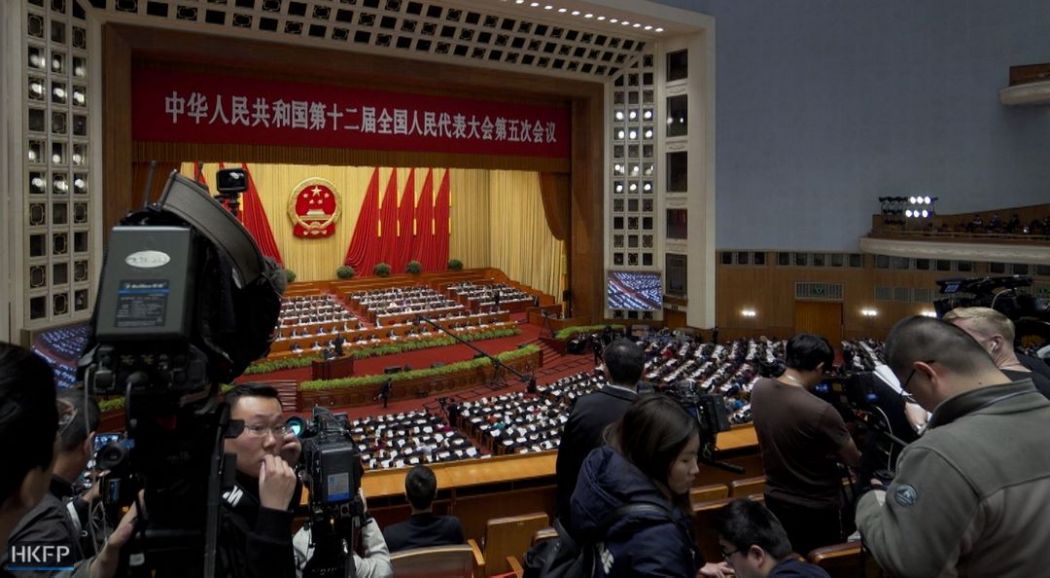
In the face of this deplorable situation, both the United Kingdom and the European Union have recently concluded that, all in all, “one country, two systems” is working pretty well.
True, both expressed concern over various matters, which in diplomat-speak represents a slight ratcheting up from previous expressions of full complacency, but given the awareness of interference the conclusions they come to are lamentable. Hong Kong’s mainlandisation today is not clandestine, but occurring out in the open, under the nose of a willfully blind world.
Given that nearly half the political opposition’s elected representatives are on trial, and other problems such as prosecution of pro-democracy leaders and activists, the ceding of Hong Kong territory to the mainland at the express rail terminus, and the imminent introduction of a law prohibiting insult to the Party anthem, what exactly would it take to show that “one country, two systems” is not working well? Nothing, it seems, short of total collapse or tanks in the streets.
What to do?
But is much of the pro-democracy movement nearly as willfully blind as these foreign governments? Whenever some new trespass occurs, it protests, but at what point does it have to begin considering whether it is worth participating at all in a political system so compromised? Have we reached the point where the pro-democracy movement should consider simply boycotting Legco elections?
Some think doing so would be a catastrophic strategic blunder, for it would allow the Party to have its way in Hong Kong entirely, including enacting draconian Article 23 “national security” legislation and fake suffrage.
With that prospect in mind, would it not be grossly irresponsible of the pro-democracy movement to boycott Legco? After all, whatever happens, it has to continue using its presence in Legco to fight a rearguard action for as long as it can, heading off the worst from coming to pass.
Really, since it is rigged and members can’t initiate legislation of their own, all Legco can be used for is defensive purposes, and the movement should avail itself of the body towards that end, whatever else happens. The Party is just waiting for the movement to take such a false step, indeed may even be trying to provoke it to do so.
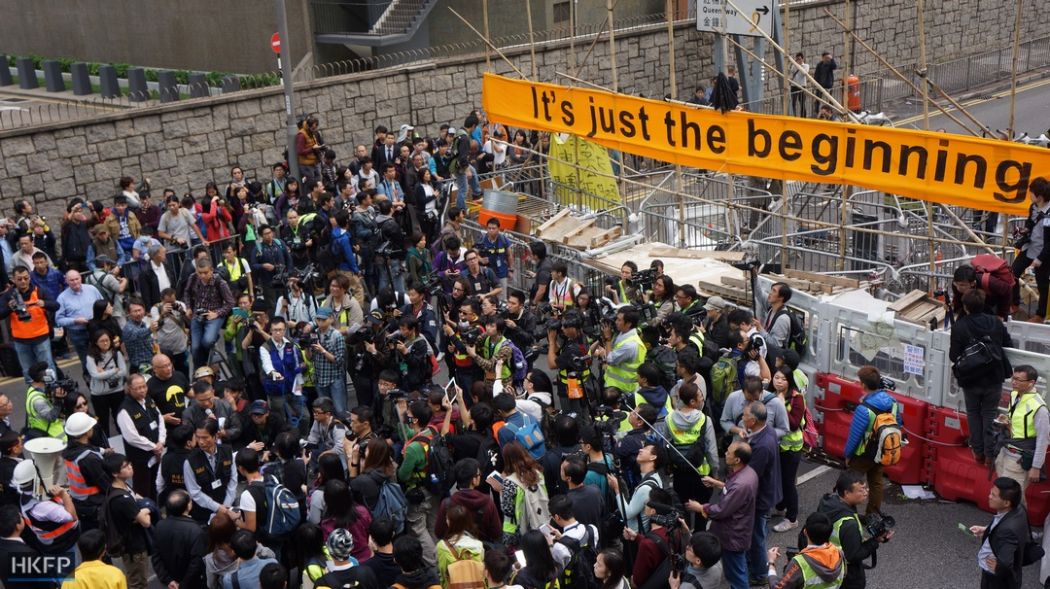
That is certainly a strong argument. But if the pro-democracy movement were to boycott Legco, it would show up the system as entirely illegitimate and bring it to the point of crisis. Something would have to give. The fear is the Party would simply fill the political vacuum and things would become worse.
Are we nearing the point where we have to accept that things may have to become worse before they get better? Do we have to take bolder political risks? Or is the best we can do to hunker down and fend off the worst for as long as we can, until, perhaps, there is little left to defend?
